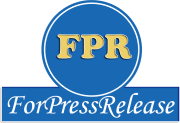
403
Sorry!!
Error! We're sorry, but the page you were looking for doesn't exist.
Malaysian Palm Oil Council Calls For Fair And Consistent Implementation Of Global Trade Rules
(MENAFN- ForPressRelease)
28th October 2025 - The Malaysian Palm Oil Council (MPOC) is deeply concerned by the European Commission's decision to lift the delay on full implementation of the EU Deforestation Regulation (EUDR), effectively ramping up a framework which, in our view, is fundamentally unjust and protectionist.
After months of preparation and significant investment by Malaysian exporters in response to the EU's earlier announcement of an "indefinite delay," the sudden policy reversal demonstrates a lack of consistency, transparency, and regard for the disruption and financial losses borne by producer nations.
This pattern of huge policy adjustments- postponement followed by abrupt enforcement - sends a troubling signal to companies which have worked in good faith to align themselves with the EU's expectations.
What makes this decision particularly disappointing is the uneven two-tier regulatory architecture the EU has constructed. Under the EUDR's country risk classification system, the EU has designated every single EU member state as "low-risk", a classification that grants them automatic access to simplified compliance procedures and streamlined one-time declarations.
Commenting, Ms Belvinder Sron, Chief Executive of the Malaysian Palm Oil Council, said: "The EU has crafted a regulation that conveniently exempts its own member states from administrative burden while imposing stringent requirements on producers from the Global South. Malaysian exporters and smallholders will bear the full weight of this bureaucratic juggernaut, whilst EU producers enjoy preferential treatment."
While Malaysian producers continue to invest heavily in sustainable practices and certification schemes, such as the EU-recognised Malaysian Sustainable Palm Oil (MSPO 2.0) standard, Malaysia is completely locked out of the very compliance relief mechanisms available to EU suppliers. This represents a clear imbalance in enforcement which undermines confidence in the regulation's fairness.
Ms Sron added: "Let us be clear about what this means in practical terms. While EU and other 'low-risk' suppliers can submit a single simplified declaration, Malaysian exporters must continue to compile exhaustive due diligence statements for every single export consignment."
Under the EU's rules, EU importers sourcing palm oil from Malaysia must still demand and verify:
1. Exact plantation geolocation data.
2. Comprehensive evidence of legal production.
3. Proof that no land use change occurred after 31 December 2020 that involved deforestation.
These requirements significantly raise compliance costs, particularly for smallholders, who form the backbone of Malaysia's palm oil industry, and provide livelihoods for hundreds of thousands of rural families.
"When well-intentioned cooperation is met with uneven treatment, it risks discouraging meaningful participation and investment in sustainability," Ms Sron said.
The immediate outcome may be a shift in supply chains away from Malaysia towards "low-risk" countries, a result that will do little to advance genuine environmental progress.
"The EU's sudden reversal of the implementation delay without warning demonstrates a lack of concern for the businesses and workers who depend on the palm oil trade. Malaysian exporters have invested in traceability infrastructure, training, and compliance systems in anticipation of these regulations. Now the goalposts have moved again," said Ms Sron.
The Malaysian Palm Oil Council calls on the European Commission to:
* Reclassify Malaysia as "low-risk," in recognition of its verifiable progress in sustainability and mandatory certification across the supply chain.
* Grant Malaysian smallholders the same simplified compliance pathways available to EU producers, specifically access to one-time declarations rather than per-shipment documentation.
* Suspend implementation pending a comprehensive, independent audit of the EU's country classification methodology to ensure consistency and fairness.
" Engage in a credible dialogue with Malaysia and other affected producers to design compliance regimes that are proportionate, science-based, and genuinely level.
Malaysia remains firmly committed to sustainable palm oil and environmental stewardship. However, this commitment must be met with equitable and science-based regulation.
"If the EU wants to lead the world on sustainability, then it must start by applying its own principles fairly. True progress depends on partnership, not protectionism," said Ms Sron.
After months of preparation and significant investment by Malaysian exporters in response to the EU's earlier announcement of an "indefinite delay," the sudden policy reversal demonstrates a lack of consistency, transparency, and regard for the disruption and financial losses borne by producer nations.
This pattern of huge policy adjustments- postponement followed by abrupt enforcement - sends a troubling signal to companies which have worked in good faith to align themselves with the EU's expectations.
What makes this decision particularly disappointing is the uneven two-tier regulatory architecture the EU has constructed. Under the EUDR's country risk classification system, the EU has designated every single EU member state as "low-risk", a classification that grants them automatic access to simplified compliance procedures and streamlined one-time declarations.
Commenting, Ms Belvinder Sron, Chief Executive of the Malaysian Palm Oil Council, said: "The EU has crafted a regulation that conveniently exempts its own member states from administrative burden while imposing stringent requirements on producers from the Global South. Malaysian exporters and smallholders will bear the full weight of this bureaucratic juggernaut, whilst EU producers enjoy preferential treatment."
While Malaysian producers continue to invest heavily in sustainable practices and certification schemes, such as the EU-recognised Malaysian Sustainable Palm Oil (MSPO 2.0) standard, Malaysia is completely locked out of the very compliance relief mechanisms available to EU suppliers. This represents a clear imbalance in enforcement which undermines confidence in the regulation's fairness.
Ms Sron added: "Let us be clear about what this means in practical terms. While EU and other 'low-risk' suppliers can submit a single simplified declaration, Malaysian exporters must continue to compile exhaustive due diligence statements for every single export consignment."
Under the EU's rules, EU importers sourcing palm oil from Malaysia must still demand and verify:
1. Exact plantation geolocation data.
2. Comprehensive evidence of legal production.
3. Proof that no land use change occurred after 31 December 2020 that involved deforestation.
These requirements significantly raise compliance costs, particularly for smallholders, who form the backbone of Malaysia's palm oil industry, and provide livelihoods for hundreds of thousands of rural families.
"When well-intentioned cooperation is met with uneven treatment, it risks discouraging meaningful participation and investment in sustainability," Ms Sron said.
The immediate outcome may be a shift in supply chains away from Malaysia towards "low-risk" countries, a result that will do little to advance genuine environmental progress.
"The EU's sudden reversal of the implementation delay without warning demonstrates a lack of concern for the businesses and workers who depend on the palm oil trade. Malaysian exporters have invested in traceability infrastructure, training, and compliance systems in anticipation of these regulations. Now the goalposts have moved again," said Ms Sron.
The Malaysian Palm Oil Council calls on the European Commission to:
* Reclassify Malaysia as "low-risk," in recognition of its verifiable progress in sustainability and mandatory certification across the supply chain.
* Grant Malaysian smallholders the same simplified compliance pathways available to EU producers, specifically access to one-time declarations rather than per-shipment documentation.
* Suspend implementation pending a comprehensive, independent audit of the EU's country classification methodology to ensure consistency and fairness.
" Engage in a credible dialogue with Malaysia and other affected producers to design compliance regimes that are proportionate, science-based, and genuinely level.
Malaysia remains firmly committed to sustainable palm oil and environmental stewardship. However, this commitment must be met with equitable and science-based regulation.
"If the EU wants to lead the world on sustainability, then it must start by applying its own principles fairly. True progress depends on partnership, not protectionism," said Ms Sron.
Company:-Jaibo
User:- Shivani Shitlani
Email:[email protected]

Legal Disclaimer:
MENAFN provides the
information “as is” without warranty of any kind. We do not accept
any responsibility or liability for the accuracy, content, images,
videos, licenses, completeness, legality, or reliability of the information
contained in this article. If you have any complaints or copyright
issues related to this article, kindly contact the provider above.

















Comments
No comment